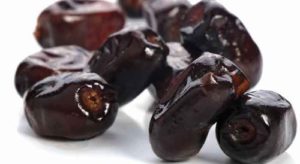Raw Snacks And Treats – Suitable Alternative To Junk The Food They Eat!

Is the alkaline diet dangerous?
According to verywellfit, the disadvantages of the alkaline diet are as follows:
- Calcium deficiency and dairy products
Dairy products contain a number of essential nutrients such as calcium, magnesium, phosphorus and potassium, which are difficult to replace in a dairy-free diet. In fact, scientists have found that after eliminating dairy from the diet, it is nearly impossible to achieve the recommended daily calcium intake (which is needed for bone health).
In addition, it is difficult to get enough calcium from vegetables. Although some vegetables, such as spinach, contain large amounts of calcium, only a small amount is absorbed due to the high concentration of oxalates and phytates that bind calcium.
- Protein deficiency
Achieving adequate protein intake from an alkaline diet is difficult due to the lack of high-quality protein sources in the diet. Current guidelines recommend that adults get between 10 and 35 percent of daily calories from protein. While fruits and vegetables may contain small amounts of protein, consuming enough of them to meet the recommended daily amounts can be challenging. A lack of protein may also contribute to a number of issues such as loss of muscle mass and malnutrition.
Calcium deficiency in alkaline diet
In an alkaline diet, by eliminating dairy products, you may face calcium deficiency.
The best foods for an alkaline diet
You don’t have to be a strict vegetarian to have an alkaline diet, but it is mostly plant-based. According to draxe.com, the following foods are good choices for an alkaline diet.
Fresh fruits and vegetables: Fruits and vegetables significantly increase the alkalinity of the diet. Some of the top picks in this basket include: mushrooms, citrus fruits, dates, raisins, spinach, grapefruit, tomatoes, avocados, horseradish, alfalfa grass, barley grass, cucumbers, kale, wheatgrass, broccoli, oregano. Cabbage, garlic, ginger, green beans, cabbage, celery, beetroot, watermelon, figs and ripe bananas.
All raw foods: Ideally, try to eat a good portion of your produce raw. Unripe fruits and vegetables are said to be biogenic or “life-giving”. Cooking foods destroys alkaline minerals. Increase your intake of raw foods and try juicing or lightly steaming fruits and vegetables.
Plant-based proteins: Almonds, navy beans, lima beans, and most other beans are good choices for protein.
Green Drinks: Drinks made from powdered green vegetables and herbs are rich in alkalizing nutrients and chlorophyll. Chlorophyll is structurally similar to our own blood and helps alkalinize the blood.
Raw foods in an alkaline diet
In the alkaline diet, it is better to eat all foods raw.
What foods should not be eaten in the alkaline diet?
In this diet you should avoid all acidic foods. These foods are as follows:
High sodium foods: Processed foods contain large amounts of sodium chloride (table salt), which constricts blood vessels and creates acidity.
Cold foods and ordinary meats
Processed grains such as canned corn
egg
Caffeinated drinks and alcohol
Oats and products made from whole wheat: All grains, whether whole or not, create acidity in the body.
Milk: Calcium-rich dairy products cause some of the highest rates of osteoporosis. The reason is the creation of acidity in the body! When your bloodstream becomes too acidic, it steals calcium (a more alkaline substance) from your bones to balance the pH level. So the best way to prevent osteoporosis is to eat lots of alkaline green leafy vegetables!
Peanuts and walnuts
Pasta, rice, bread and packaged grain products.